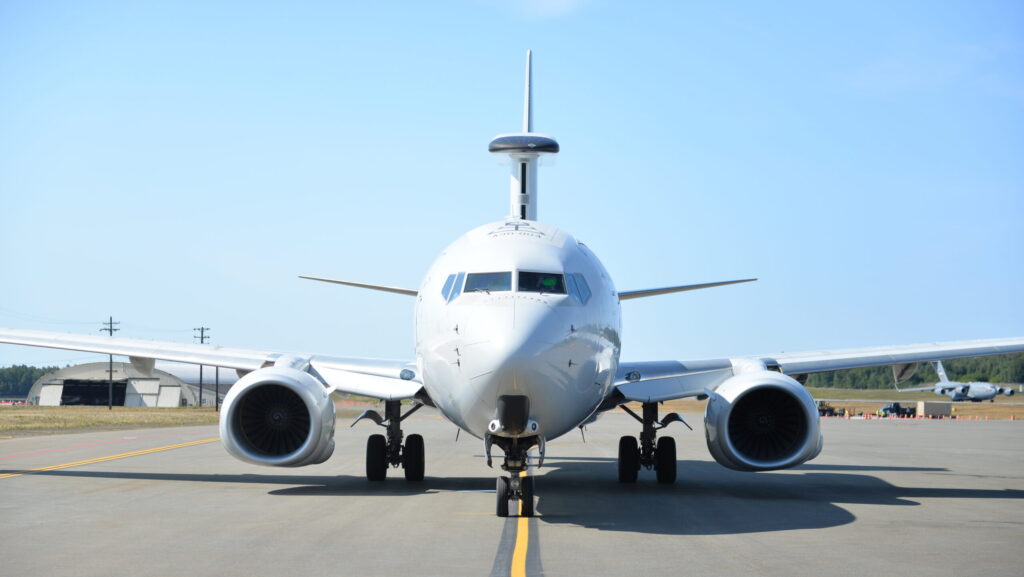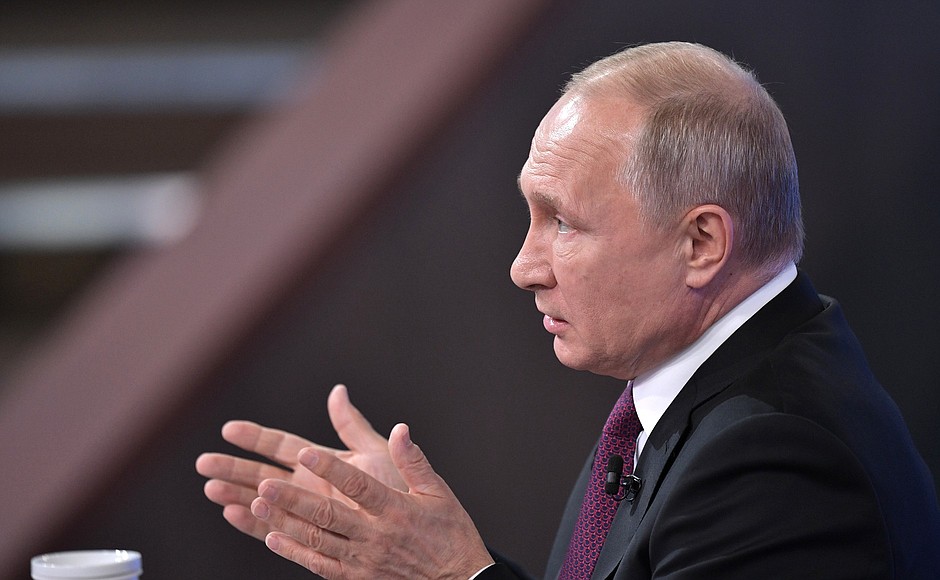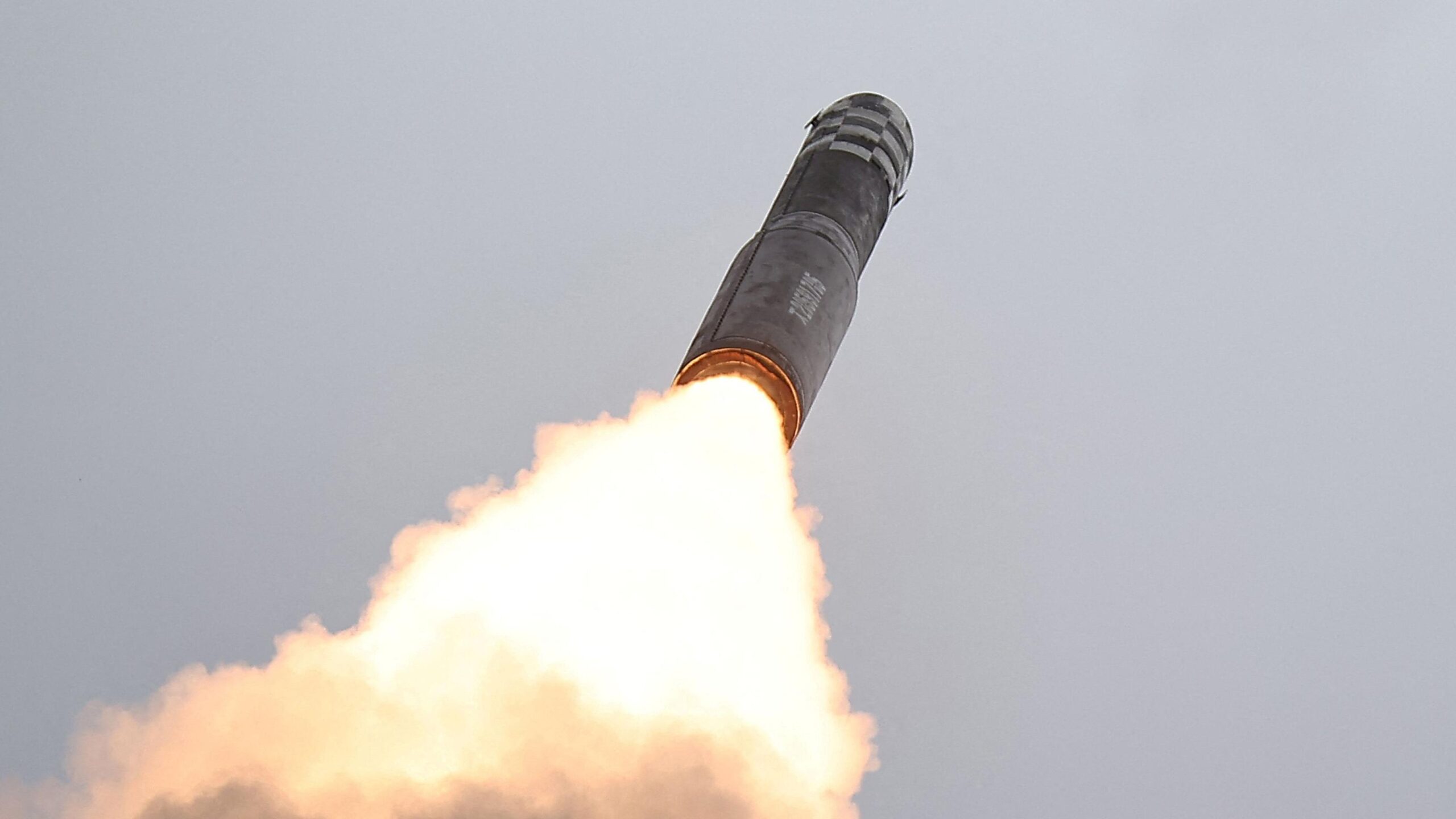A Royal Australian Air Force E-7A Wedgetail airborne early warning and control aircraft is prepared for a sortie during Red Flag-Alaska 19-3 at Joint Base Elmendorf-Richardson, Alaska, Aug. 9, 2019. (U.S. Air Force photo by 2nd Lt. Mark Goss)
AFA WARFARE SYMPOSIUM — Negotiations to field two rapid prototype E-7 radar planes for the US Air Force have hit a stumbling block over a price disagreement with manufacturer Boeing, according to Secretary Frank Kendall.
During a roundtable with reporters today at the Air & Space Forces Association’s Warfare Symposium, Kendall noted that the Air Force is moving toward space-based platforms to provide intelligence, surveillance and reconnaissance (ISR) capabilities, but wanted to keep some air-based ISR courtesy of platforms like the E-7A Wedgetail, a replacement for the aging E-3 Sentry.
But Kendall then said the service is ”having a hard time with that one getting a price agreement with Boeing.”
“We’re still in negotiations with them, and that’s not been finalized yet,” he said.
After Kendall’s remarks, a spokesperson for Boeing told Breaking Defense in a statement, “We’re partnering with the U.S. Air Force to deliver this critical capability and are working diligently to reach an agreement.”
When the Air Force awarded Boeing a deal worth up to $1.2 billion contract to kick off E-7 production a year ago, the award was made as an undefinitized contract action (UCA), meaning that early work could start as the Air Force and Boeing ironed out specifics like terms and prices. The UCA covers two rapid prototypes currently in development, and the Air Force hopes to transition that program into production to field a total fleet of 26 Wedgetails by 2032.
Broadly, Boeing officials have recently emphasized that they’re pursuing greater discipline in their contract negotiations after the company’s defense business has hemorrhaged billions of dollars, a stance that has led executives to swear off fixed-price development deals and even resulted in the contractor being eliminated in a competition to build a replacement “Doomsday plane” for the Air Force.
Reaching an agreement on price is crucial for finalizing the Wedgetail contract, a process that E-7 program manager Stu Voboril in a previous interview with Breaking Defense said the two parties were hoping to wrap up this year.
During a later roundtable with reporters, service acquisition chief Andrew Hunter noted that given the financial pressures at Boeing, it’s “not that surprising” the aerospace giant has adjusted its approach to bidding and formulating proposals.
“Obviously when it comes to Boeing, you know, they’ve gotten into some contracts in the past that it’s apparent that as they were bidding those, there was key information they were lacking,” Hunter said. “So maybe at some level, it’s not that surprising that they’re trying hard to do their homework and not bid [for] things and not understand the full scope of the work that they’re going to be expected to perform when they prepare their proposal.”
Hunter also revealed that the Wedgetail rapid prototyping effort encountered some unexpected difficulties. Specifically, the US hoped to leverage work done for the UK’s Wedgetail order, but Air Force requirements proved more divergent from the UK’s model than officials anticipated. (UK lawmakers aren’t happy with how their own acquisition has gone across the pond, though NATO liked the platform enough to agree to buy six aircraft in November.)
RELATED: Despite huge industry losses, Air Force ‘not getting rid of fixed-price contracts,’ Hunter says
“The big surprise there was [an] unexpected amount and degree of non-recurring engineering required to meet the requirement that the [US] Air Force specified, which we thought was very, very close to what the UK is currently procuring from Boeing,” Hunter said. According to an Air Force spokesperson, that non-recurring engineering work is a major driver in the difficulty to reach an agreement on price.
The service is working with the plane maker to “understand the specificity of what’s kind of implied in the Boeing proposal,” Hunter added, which will help identify features that are essential and those that could either be deferred or deemed unnecessary.
“It would be nice to be able to turn the wheel a little faster when it comes to the bid and proposal process,” Hunter said. “Ultimately, it’s about the interplay between us and Boeing, clarifying the scope of work, and so if we can turn the crank a little faster, I think we can actually help them do a better job with their proposals.”





















Discussion about this post